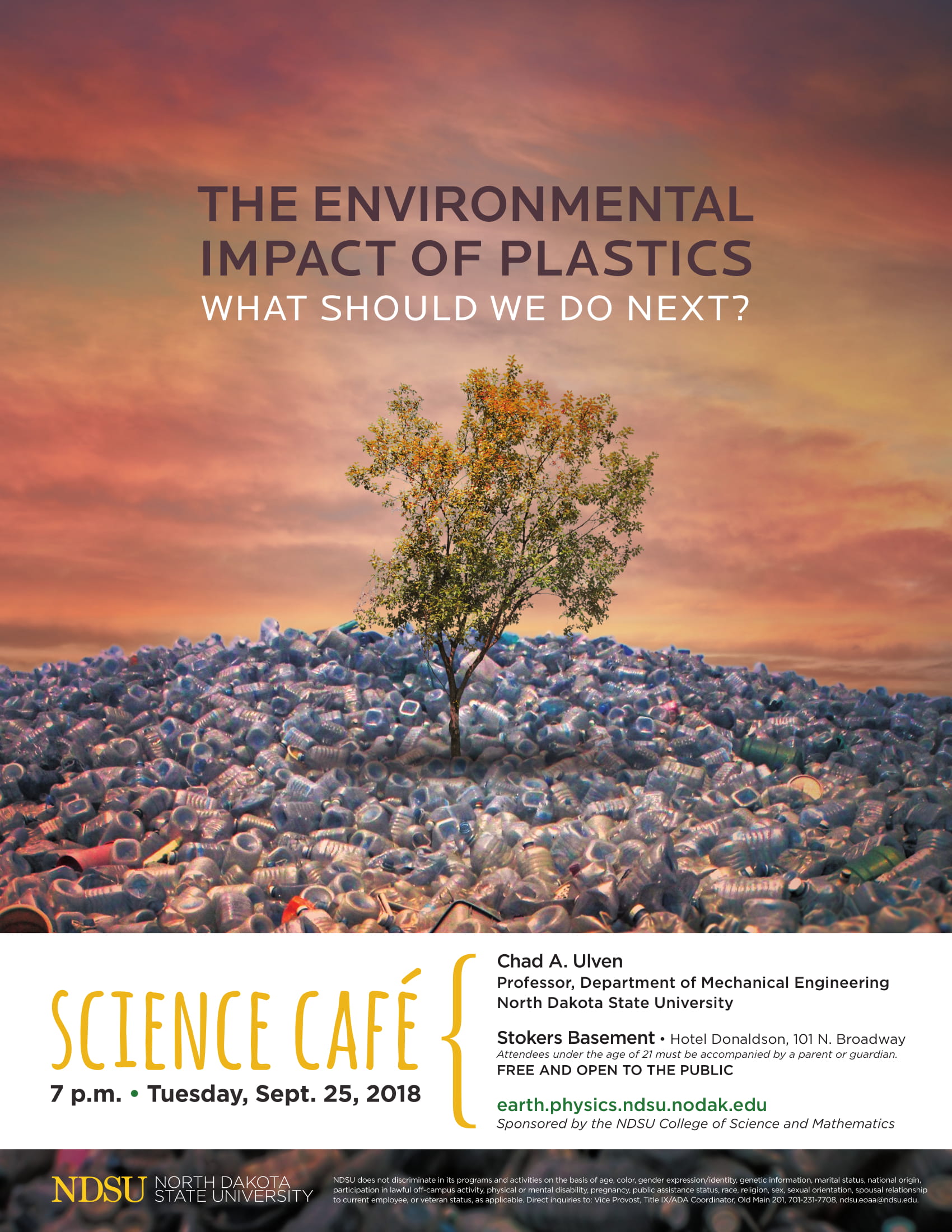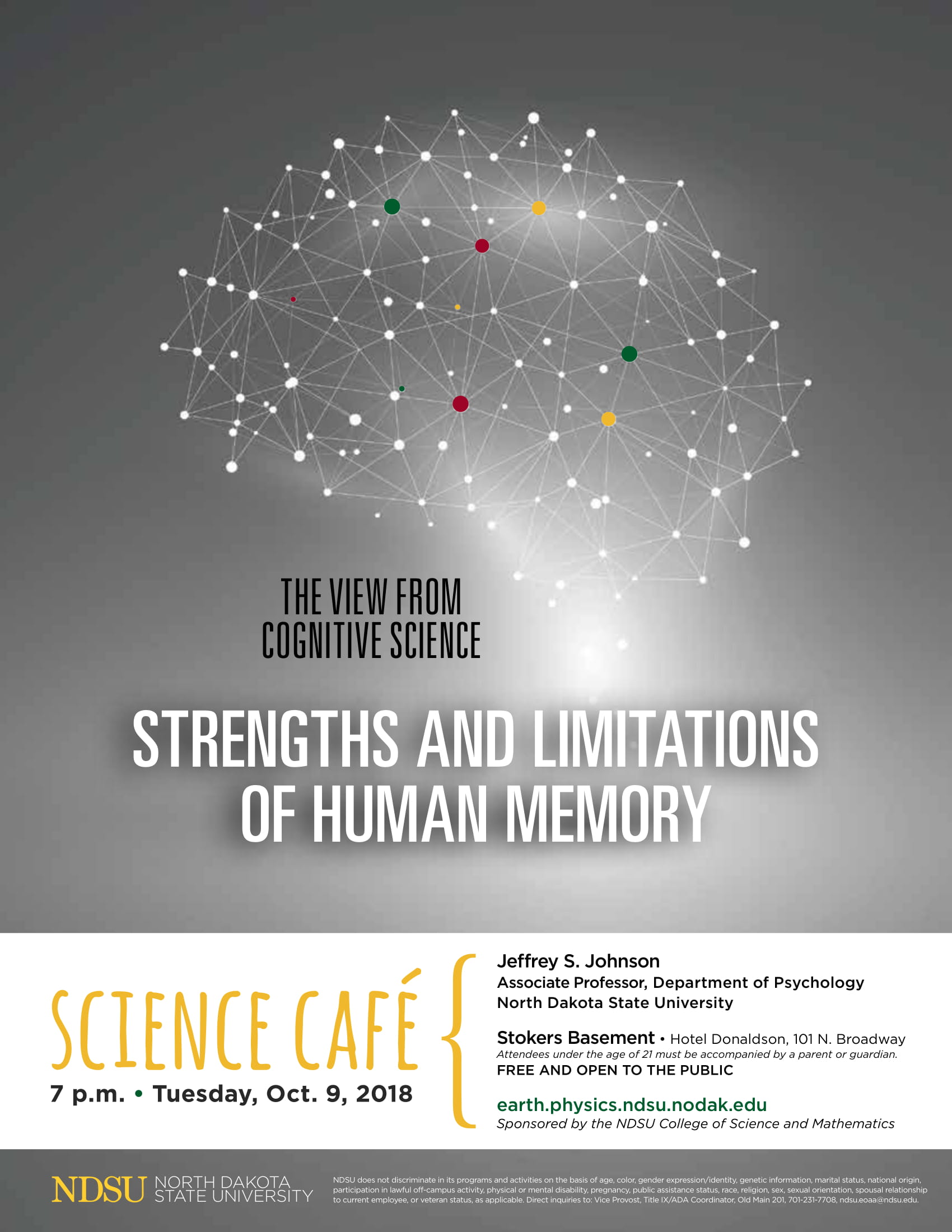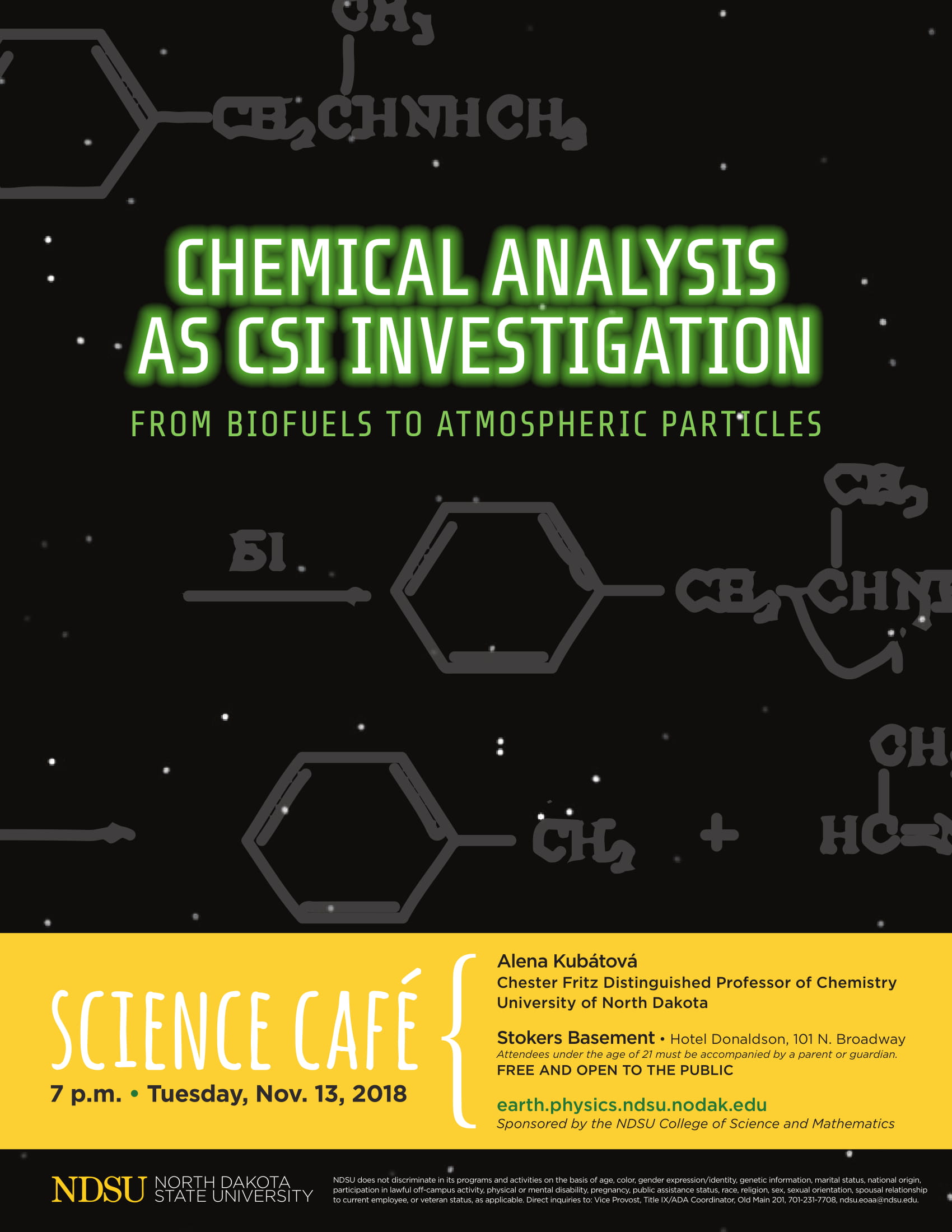
Impact of Plastics on Our Environment: What's Next?
Chad A. Ulven, PhD
Professor / Associate Chair
Mechanical Engineering Department
North Dakota State University
Abstract: Over the past couple decades, a severe growing concern over the amount of plastic waste pilling up in our oceans, landfills, and scattered across our landscape has emerged. Over 380 million tons of plastic is produced per year worldwide. At our current rate of disposal, it is predicted that by 2050 there will be a greater amount of plastic mass in our oceans than sea life. Evidence of numerous environmental consequences to wildlife, wildlife habitat, and humans have been documented and various organizations have begun to focus specially on addressing ocean plastic, plastic bags, plastic straws, etc. to help remediate these problems. However, is this enough? What else do we need to do? When you finish your leftovers from last night's restaurant, what do you do (along with all your neighbors) with the polystyrene foam container? Local and regional recyclers of plastics cannot keep up nor handle all of the different types of plastics that can be recycled because of a gross lack of infrastructure and post recycling distribution. This presentation will explore these issues more deeply as well as others related to plastic waste, talk about some potential solutions, but most of all start an important conversation about what we should do next?

How good is your memory really? The view from cognitive science.
Jeffrey S. Johnson, Ph.D.
Associate Professor
Department of Psychology
North Dakota State University
Abstract: Recent events have thrust the topic of human memory-in particular, questions concerning its durability and accuracy-into the national spotlight. The daily news cycle and many a twitter thread have featured a slew of newly minted memory experts from opposite ends of the political spectrum confidently arguing that memory is either a) inherently unreliable and prone to distortion and confabulation, particularly in circumstances involving strong emotion, or b) extremely accurate, even after many years and particularly when strong emotions or trauma are involved. Lucky for us, a considerable body of research in the cognitive sciences has focused on assessing our ability to encode and remember information gleaned from experience. Questions have centered on how much information we can retain, for how long, and with what degree of fidelity. Meanwhile, other research has focused on elucidating the factors that contribute to memory distortions, or the formation of outright false memories under some circumstances. This presentation will take a non-partisan look at what the scientific study of human memory has told us about this important component of human cognition.

Chemical analysis as CSI investigation: From biofuels to atmospheric particles
Alena Kubatova
Chester Fritz Distinguished Professor
Department of Chemistry
University of North Dakota
Abstract: Everything around us consists of chemical compounds, yet often we do not know what they are. A single chemical or even a single atom position can change a chemical from being benign and useful to a nasty toxin. In addition, chemicals often occur as mixtures of hundreds if not thousands of individual components, for example, atmospheric particles or particulate matter. Among them, some chemicals are key to cloud condensation, climate change and human health. When designing new biofuels as complex mixtures, we also need to understand the individual components to be able to assess their potential or predict impact on our life. But, how do we go about it and how can we trust the data obtained?